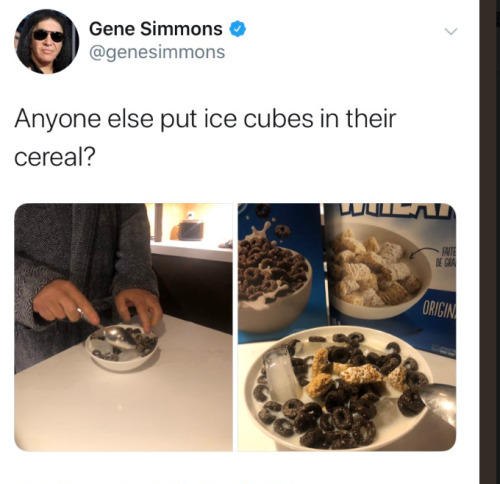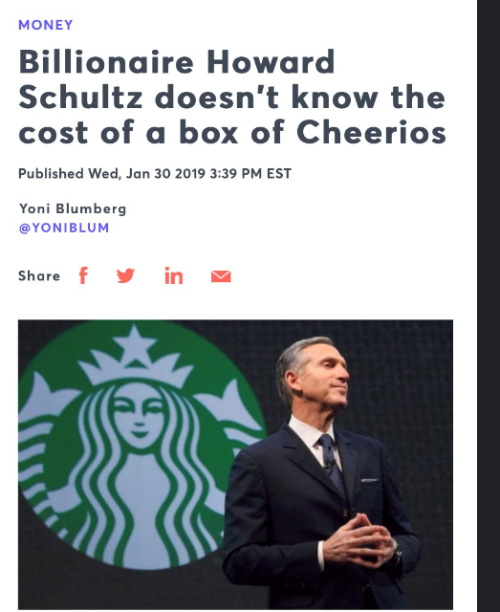notourz:shitonthesewallsray:strongorcbutch:thegrimmlovely:blackwitchmagicwoman:auroraluciferi:askmac
notourz:shitonthesewallsray:strongorcbutch:thegrimmlovely:blackwitchmagicwoman:auroraluciferi:askmace:scholarlyapproach:DON’T LET THIS HAPPEN TO CEREAL!!!Listen in the past the poor have had to improvise cheap food the rich never wanted as a means to survive. And over the many years of innovation made the food taste good until eventually the rich where like: “Oh hay you actually like that garbage? Why on earth would you like it?” Then they try it, love it, start buying it, and then drive the price up so much it becomes a luxury good.They do this and its devastating, the food typically never becomes affordable again. It don’t matter how cheap the foo dis to produce, it doesn’t matter if there is almost no meat on the bone or its super difficult to eat and messy. Once the poor discover how to make some bit of cheap food taste good, the rich take it away via driving the price of it up.THEY DID THIS TO RIBS.Ribs were garage meat. Just look at them, there is hardly any meat on the bone, you have to eat them by hand usually, and they are messy. They where an undesirable cheap source of junk meat. But the poor being the poor made them taste good. (Because they don’t have much to choose from.) The rich discovered the meals the poor made with them and decided they liked ribs too. People discovered they could sell a few ribs to rich people and make way more money then selling lots of ribs to poor people and the price was driven up.DON’T LET THIS HAPPEN TO CEREAL!!!They did the same to brisket. You used to be able to get brisket for less than a dollar a pound, which meant you could get a twenty pound brisket fairly cheaply. And then you smoked it, sliced it, and had meat for weeks if not a full month. And it was tasty. I grew up eating brisket at least once a month because my family could afford it.It was a cheap meat because no rich person looks at the dangly part of the neck of a cow and goes ‘ooh, that looks tasty!’.But then Food Network started showcasing things like barbecued brisket. Rich people started showing up at places that weren’t just Rib Crib to get their barbeque. And the price of brisket went up. A lot.I regularly see it for over five dollars a pound in stores now. And while yeah, that might not seem like a lot when you’re talking only a pound or two of meat, brisket is normally sold in ten to twenty pound sizes. It’s become completely unaffordable to the people that made it delicious.Sushi used to be really cheap, too, until it became ‘trendy’. Guess why you’re now paying twelve dollars for your order of California rolls? Because rich people discovered something that poor people had been eating for ages.Noticed the prices of fajita meat, chicken thighs, or ham hocks has gone up recently? You guessed it. Rich people are taking our food and now we’re scrambling to afford the things that we grew up eating.Lobster is a perfect example of this phenomenon. For hundreds of years, lobster was regarded as a sort of insect larvae from the depth of the sea. It had zero appeal as a “luxury food” until people living in NY and Boston developed a taste for it. Before the 19th century, it was considered a “poverty food” or used as fertilizer and bait - some household servants specified in employment agreements that they would not eat lobster more than twice a week.It was also commonly served at prisons, which tells you something about prison food.Only by cleverly marketing lobster as an indulgence for the privileged made it cost so much. It became a vehicle for enormous profit spawning a multi-billion dollar global industry in the process. This mythical affection for lobster flesh - not its practical value in terms of taste, nutrition, or any other reasonable consideration - drives its value. LMAO. Wait. Anyone else’s eye twitchin?Food gentrification is a long standing practice and it’s some of the most evil shit I can think of. It’s why I refuse for example as someone living in the US to buy things with Quinoa in them. It is specifically pricing an indigenous population out of their prime staple food. It’s a horrific invasion of one of the final requirements of staying alive. -- source link




